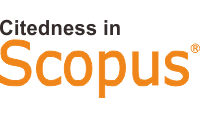Views Of The MUI, NU, And Muhammadiyah On The Expansion Of The Meaning Of Ashnâf Fî Sabîlillâh In Indonesia
DOI:
https://doi.org/10.31943/afkarjournal.v6i4.828Keywords:
Meaning of fi Sabillah, MUI, NU, MuhammadiyahAbstract
This research aims to analyze the views of the three largest Islamic organizations in Indonesia, namely the Indonesian Ulema Council (MUI), Nahdlatul Ulama (NU), and Muhammadiyah, related to the expansion of the meaning of ashnâf fî sabîlillâh in the current era. This research uses descriptive analytic qualitative method by collecting data from various related sources. The results showed that the Indonesian Ulema Council (MUI), as a joint community organization of various Islamic mass organizations in Indonesia, has an important role in providing fatwas and becoming a reference for Muslims and the government. MUI also has a view related to the expansion of the meaning of Ashnâf Fî sabîlillâh. Nahdlatul Ulama (NU) through the NU Institute of Zakat and Infaq Shodaqoh (LAZISNU) views that ASNAFIS has a general meaning, namely for the defense of Islam, Muslims, and public interests such as establishing schools and hospitals. Muhammadiyah through the Muhammadiyah Zakat and Infaq Shodaqoh Institute (LAZISMU) interprets ASNAFIS in three categories. First, the meaning of war, defense, and Islamic security. Second, the meaning of Islamic religious interests. Third, the meaning of Islamic religious interest. This research is expected to contribute to enriching the understanding of the views of three major mass organizations on the expansion of the meaning of ASNAFIS. In addition, this research also emphasizes the importance of Islamic legal certainty related to zakat in the context of zakat management which is increasingly growing in Indonesia along with the rapid development of zakat payment technology.
Downloads
References
Amsani, H. (1986). Muhammadiyah: Modernis yang Moderat, dalam M Rusli Karim (ed.), Muhammadiyah Dalam Kritik dan Komentar. Rajawali Pers.
Bahari, N. F., Hanefah, M. M., & Shafii, Z. (2021). Islamic social finance during economic uncertainty: Special roles of Ar-Rahnu. In COVID-19 and Islamic Social Finance (pp. 214–224). Taylor and Francis. https://doi.org/10.4324/9781003121718-18
Depag RI, D. J. B. M. I. dan P. H. (2003). Himpuna Fatwa Majelis Ulama Indonesia. Direktorat Jenderal Bimbingan Masyarakat Islam dan Penyenggaraan Haji Depag RI.
Fachrur, A., & Rohmah, S. N. (2019). Eksistensi Fatwa Majelis Ulama Indonesia dalam Pranata Hukum Islam di Indonesia. SALAM: Jurnal Sosial Dan Budaya Syar-I, 6(5), 459–480. https://doi.org/10.15408/sjsbs.v6i5.20832
Fajar, R., Anggraini, E., Habibi, A., & Noviarita, H. (2022). Zakat and Macro Economic Effects on Indonesian Inflation. Al-Kharaj : Jurnal Ekonomi, Keuangan & Bisnis Syariah, 4(6), 1571–1585. https://doi.org/10.47467/alkharaj.v4i6.1025
Fawas Al-Badawi, Wulida Ainur Rofiq, M. A. (2023). Analisis Keberhasilan KH. Hasyim Asy’ari Menyerukan Jihad dalam Bingkai Gerakan Sosial. 2(3), 1591–1606.
Gunaepi et al. (2018). Analisis fiqh asnaf fi sabilillah dan implementasinya pada Badan Zakat Nasional. KASABA: Journal Of Islamic Economy, 11(2), 168.
Habibaty, D. M. (2017). Peranan Fatwa Dewan Syariah Nasional-Majelis Ulama Indonesia Terhadap Hukum Positif Indonesia. Peranan Fatwa Dewan Syariah Nasional-Majelis Ulama Indonesia Terhadap Hukum Positif Indonesia, 14(4), 447–453. http://mui.or.id/id/category/profile-organisasi/sejarah-mui/
Habibullah, E. S. (n.d.). Implementasi pengalokasian zakat pada Asnaf fi Sabilillah (Studi Ijtihad Ulama Klasik dan Kontemporer). 149–192.
Hakim, L. (2020). Konsep Asnaf F ī Sabilillah : Kajian Komparatif Pendapat Ulama Salaf dan Kontemporer. 20(2).
Handayani, N. S., Apriantoro, M. S., & Al-Husnayaini, M. (2023). The Strategic Role of DSN-MUI in Developing Islamic Economic Law. Al-Iktisab: Journal of Islamic Economic Law, 7(1 SE-Articles). https://doi.org/10.21111/aliktisab.v7i1.9297
Husnah, Z. (2021). Pengelolaan Zakat Produktif Perspektif Yusuf Qardhawi (Studi di Pusat Kajian Zakat dan Wakaf “eL-Zawa” Universitas Islam Negeri Maulana Malik Ibrahim Malang). Sakina: Journal of Family Studies, 5(2). http://urj.uin-malang.ac.id/index.php/jfs/article/view/743
Jauhari, N. (2013). Resolusi Jihad dan Laskar Sabilillah Malang Dalam Pertempuran Surabaya 10 Nopember 1945. Jurnal Studi Sosial, 5(2), 69–75. http://lp2m.um.ac.id/
Malik, A. F. I. (2020). Islam Keindonesiaan NU dan Muhammadiyyah sebagai Penjaga NKRI. Prosiding Nasional, 3(September), 255–268. https://www.prosiding.iainkediri.ac.id/index.php/pascasarjana/article/view/57
Mubin, F. (2020). Sejarah dan Kiprah Nahdlatul Ulama di Indonesia. Fatkhulmubin90@Gmail.Com, 3(1), 1–15.
MUI. (2003). Himpunan Fatwa Majelis Ulama Indonesia. Depag RI.
Nopiardo, W. (2019). Perkembangan Fatwa MUI Tentang Masalah Zakat. Jurnal Ilmiah Syari‘Ah, 15(1), 65–76.
Rahmawati, T., & Fauzi, M. M. (2020). Fikih Filantropi Studi Komparatif Atas Tafsir Fi Sabilillah Studi Komparatif Atas Tafsir Fi Sabilillah. Duta Media Publishing.
Wisandani, I. (2022). Analisis Penerapan Fatwa Zakat Majelis Ulama Indonesia pada Lembaga Amil Zakat Nasional Dompet Peduli Umat Daarut Tauhid Priangan Timur.
Downloads
Published
How to Cite
Issue
Section
License
Copyright (c) 2023 Nur Sillaturohmah Handayani, Isman, Muthoifin

This work is licensed under a Creative Commons Attribution 4.0 International License.




















